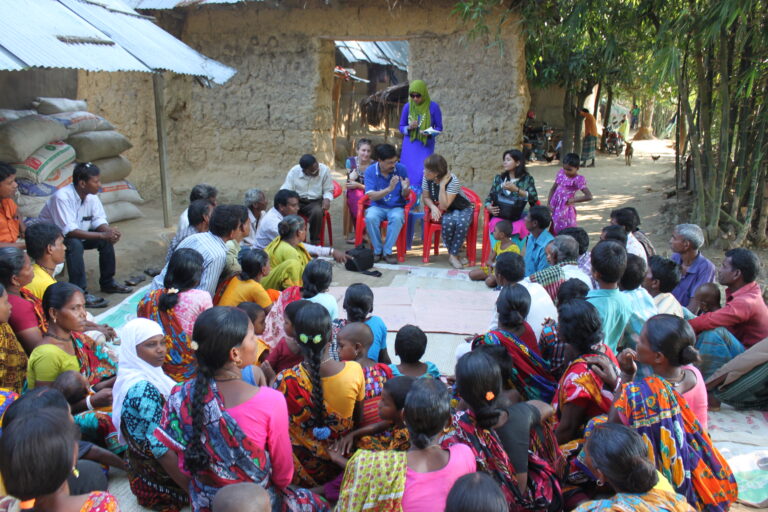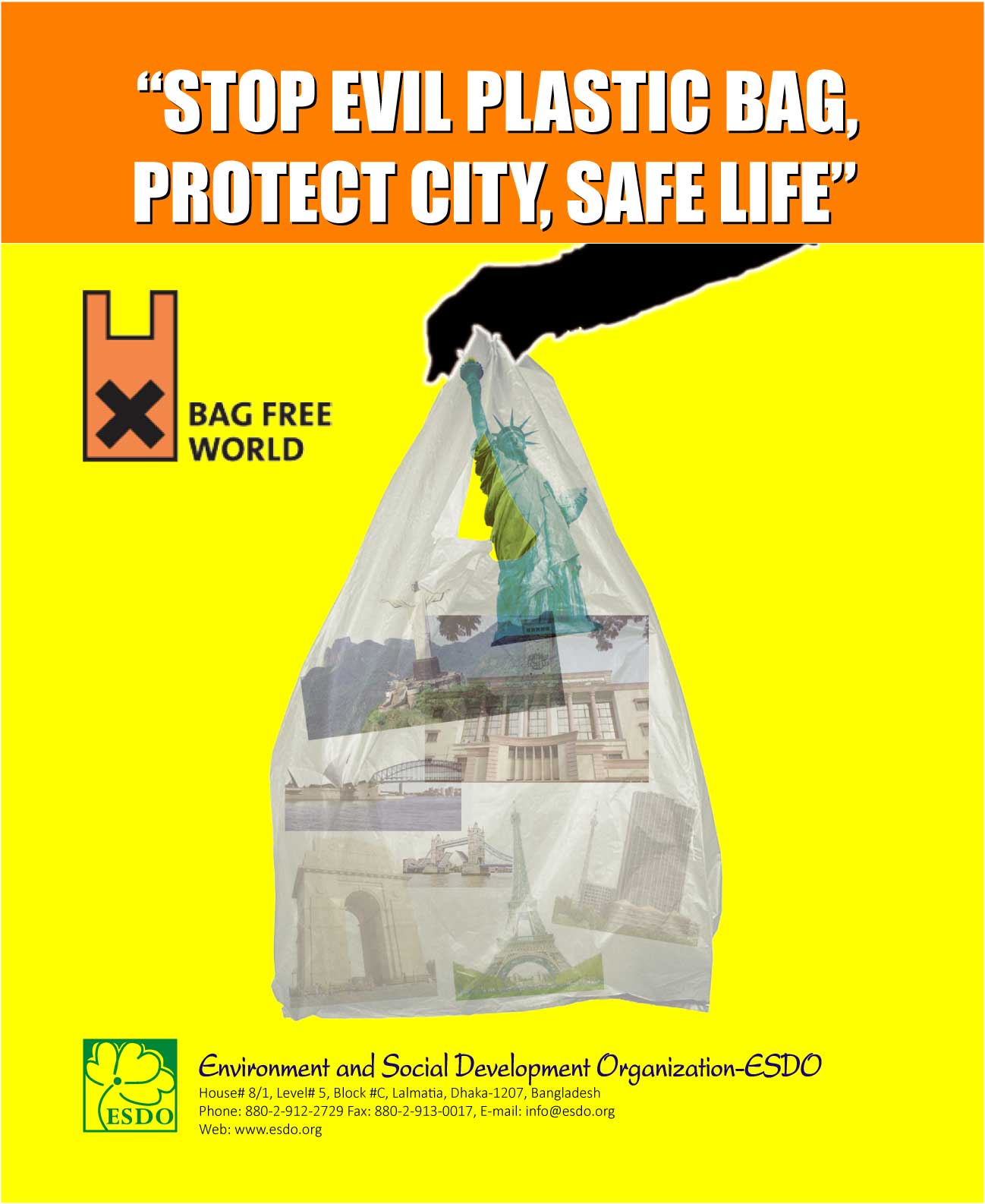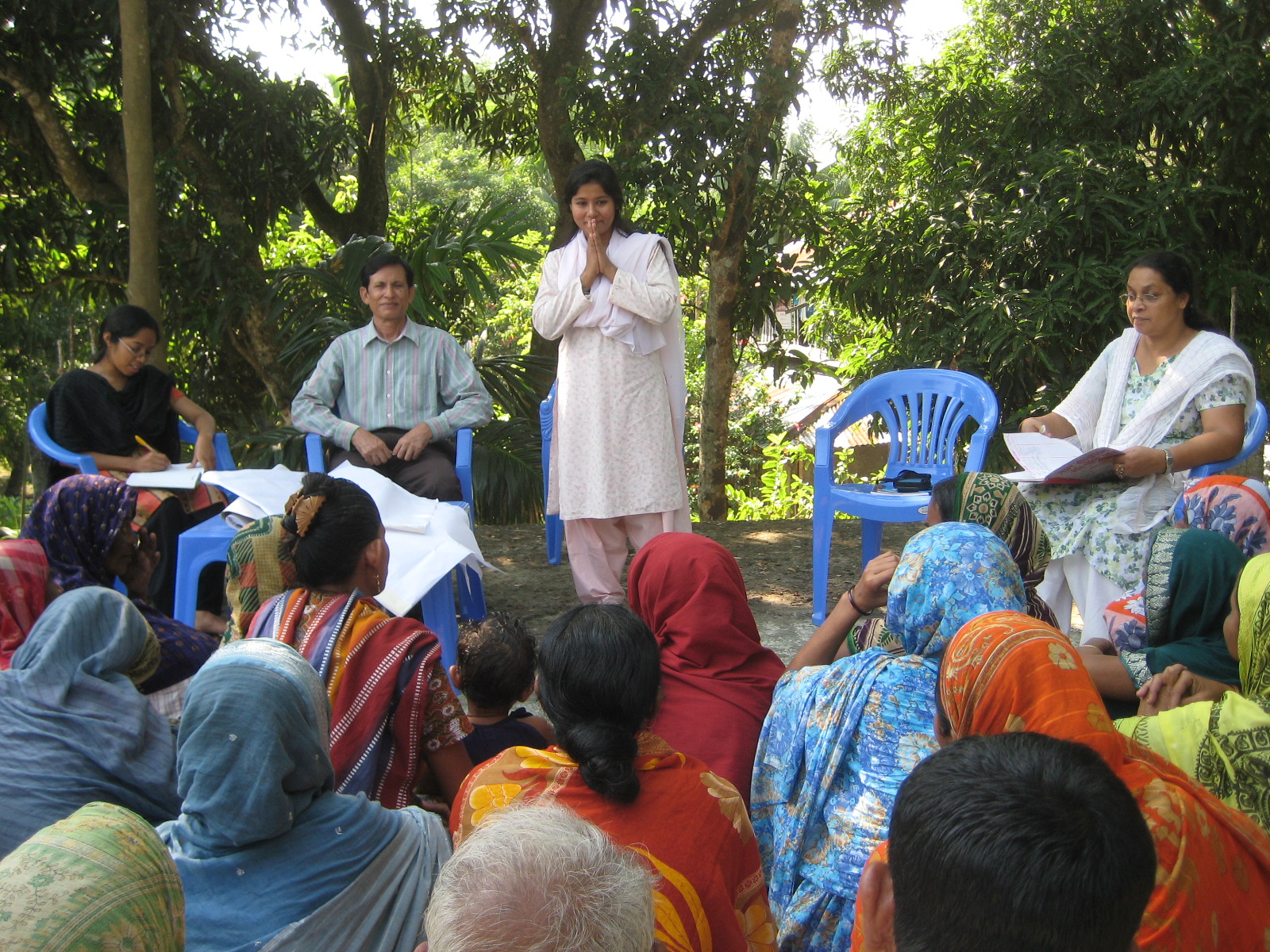Environment and Social Development Organization (ESDO) Bangladesh Harvesting ideas and securing a better home for all

Best known to be the 1st NGO in the world to push for plastic shopping bag ban in Bangladesh way back when plastic pollution was not yet discussed anywhere else, GAIA Asia Pacific sat down with Siddika Sultana, Executive Director of ESDO, to talk about the organization’s history, their programs, and how they are coping during the pandemic.
ESDO and the plastic bag story
ESDO is a Bangladeshi organization established in 1990 to spread the message about the need for environmental conservation: to ensure the protection of biological diversity and ecological balance and build a large environmental movement.
It all started when Dr. Shahriar Hossain, the founder of ESDO and then a journalist in Bangladesh and a graduate student in Australia, walked into a store in Australia to buy fruits and other supplies. As he was paying for his purchase, the store owner asked: plastic bag or paper?
The rest, as they say, is history. Dr. Hossain went back to Bangladesh, studied the harmful effects of plastics, pushed the story to a national newspaper where he was working, discouraged by many, threatened by the plastic industry but supported by seven friends who helped established ESDO. As Siddika puts it, Dr. Hossain got the idea and dreamed of home.
Currently ESDO works with the community through student volunteers with 8 Green Clubs in Dhaka City (with 30 to 35 members each) and 10 Girl Scout and 10 Boy Scout groups who help in capacity building programs, events, and rallies. Back in 1992, Siddika was a volunteer student for ESDO mainly involved in workshops and working with communities, a proof that teaching them young goes a long way.
What are ESDO’s top priorities?
Although formally formed in 1990, ESDO’s activities started in 1988. In 1995 ESDO set the top priorities of action on “Stop Plastic Pollution and Toxic-Free World”. Back then, it focused mainly on environmental issues, social justice issues, waste management, and movement building; until 2000 when we added environmental health with chemical safety in our program.
What are ESDO’s ongoing campaigns?
First is Building “Zero Waste community”. It’s our dream project. We are ready to kick off the pilot project; but due to COVID-19 pandemic, we had to delay it. We started the ground work through our eco-village programs in 1992 and the Zero Waste village project in 2013 where we go to communities and encourage and educate the village people to use their indigenous practices that do not disturb the environment. They relearn cultivation, producing green fertilizers, and homesteading. Barren lands with no trees or drinking water are now green villages. In 2012, we added the Zero Waste component so we are teaching them how to manage their waste and how to create fertilizers from waste, which they eventually sell.
Second is plastics bag ban. We started in 1989 and in 2002, after 13 years of campaigning, social mobilization, and policy advocacy, we won on this front. However, we are still struggling as new types of plastics are coming in such as sachet, cups, straw, and glasses. But now we are closer to banning single use plastics. Our plastic pollution movement focuses on campaign and policy advocacy, corporate and global policy change, brand audit, and movement building.
Third is our work on lead-free paint; which started in 2008. After a long campaign and advocacy work with the government, Bangladesh set a mandatory standard for lead-free paint in 2018. This is another pioneering initiative of ESDO, another 1st in the world.
Fourth is on e-waste. We have submitted guidelines to the government. We hope to get good results this year and have a new law on e-waste.
All in all, ESDO is focused on awareness raising through our work with volunteers and students, policy advocacy with the government, and designing campaigns and conducting research.
One of ESDO’s work is policy advocacy, how is it working with the government?
It is not always easy but after ESDO established its good reputation, the government now listens to us.
What are ESDO’s biggest accomplishments and achievements?

The plastic bag ban in Bangladesh and building a global campaign and movement around it, the national and global mercury-free dentistry movement, banning microbeads in cosmetic and mercury in skin lightening cream, the High Court verdict to ban SUPs, lead-free paint, environmental education, e-waste management guideline, community-based waste collection, and pollution-free vehicles. ESDO developed 10,700 environmental educators and defenders through environmental camps for nature conservation and green clubs and developed and built support to 1.5 million people in 25 communities in Bangladesh. We have motivated more than 40,000 dental professionals in Asia, Africa, Latin America, and Europe towards mercury-free dentistry in collaboration with the World Alliance for Mercury-free dentistry, Asian Center, African Center, and Latin American Center.
How is your work impacted by the COVID crisis?
COVID-19 pandemic slow downed our movement and practical intervention; but we are not sitting at home. We have continued with our programs and conducted study on the impacts of COVID-19 related SUPs waste and released a report on SUPs and hazardous plastic generation by the healthcare system and how the waste pickers are involved in the process. We also did a study on general and personal hygiene. Awareness program continues through social media and online press conferences.
What are the main environmental issues that your country/region is facing?
Chemicals and climate change. While Bangladesh is not heavy on industries, we are not emitting carbon, we are facing the same problems faced by other countries. Plastic pollution is an emerging environmental issue that needs to be tackled.
How do you see your organization’s work evolving in the next years?
We are focused on Zero Waste communities and villages and the need to balance SUPs through modeling shops and restaurants. We are also working on PFAS pollutants which can be a major challenge because we are facing the big textile industry. But we have the opportunity to make this happen. When we started the lead-free campaign, ESDO was a small organization but we won. Our strategy: we invite people to come to us, to think about the country, to think about their children, and then make a decision. We always say, we are not against you, we are not the enemy of the country. If it is not safe for the environment and the workers, why would you do that? Please think about your nation.
How do you envision a just and equitable recovery from COVID-19 and how can your organization’s work be part of the solution?
This is really a challenge but we will try. ESDO can focus on health safety and share knowledge through the media. We can also do capacity building for the community. We design a campaign, do our research, raise awareness, think of policy changes, design best practices, and get cooperation from all sectors of the society. We believe collaboration, sharing, and network building can help.
What are your thoughts on the waste crisis that many countries in your region (and in the world) are living in right now?
We don’t have a waste management system or law but we are trying hard to change this. Other stakeholders are working with the government and other companies. We are trying to solve this issue.
Do you collaborate with partners in other regions? If so, how?
We have 3 network partner organizations in Bangladesh. We also work with organizations in India, Indonesia, Malaysia, Nepal, Philippines, Vietnam, and Sri Lanka.
How does your work on waste relate to social justice?
We work with indigenous people (IPs) in the Zero Waste villages. When we did the lead-free campaign, we focused on occupational safety for the workers. We will start our work on waste pickers rights.

Read More
.

